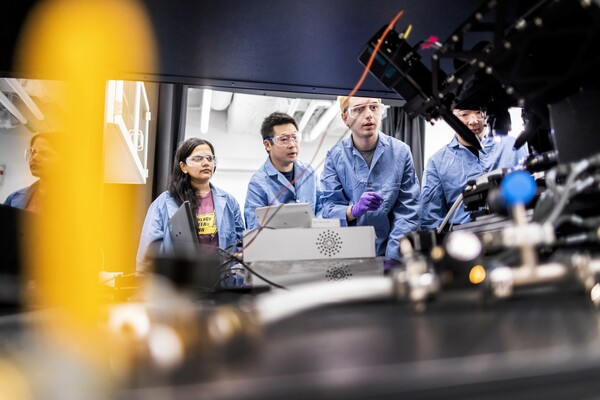
nocred
When Madison Dawkins, a sophomore at the University of Pennsylvania, was growing up, she learned to feel empowered as a woman. From kindergarten on, she attended an all-girls school in Bryn Mawr, Pa., near her hometown of Wynnewood.
“Throughout my years at the school, the teachers would always say, ‘You can do anything,’ and we felt like we could because we were always supported,” Dawkins said. “The best students in class were women, we were always seeing women succeed and the majority of our teachers were female, so we always had that woman role model we wanted to emulate in our lives.”
But in her junior year of high school, Dawkins realized that this wasn’t the case for everyone. After watching the film “Girl Rising,” she saw that not all women had access to an education.
“That was really eye-opening,” said Dawkins, “I always knew that not all schools were as supportive or cultivated the ‘women can do anything’ image. But I think it was just so hard for me to see that around the world so many girls aren’t even afforded the opportunity to get educated.”
Later that semester, inspired after attending the Pennsylvania Conference for Women, Dawkins said, “I just wanted to take that and share that experience with girls in my community.”
She applied for and won a grant from GenHERation, a female empowerment network started by Katlyn Grasso, Penn alumna and a 2015 winner of Penn President Amy Gutmann’s President’s Engagement Prize. Dawkins proposed an idea to create a monthly lecture series called Not Equal Yet for girls in her community in which female professionals from the Philadelphia metropolitan area would talk about their experiences, giving tips on how to succeed.
“I had speakers come from a broad range of disciplines to show there isn’t one model for success; you can do anything in any field,” Dawkins said.
She has devoted her undergraduate career and the years leading to it to being an advocate for underprivileged minorities.
At Penn, Dawkins, who is majoring in political science, is one of the directors of mentorship for an organization called Women Speak that provides campus dialogues on women’s issues.
She’s also creating her own minor on race and criminal justice in the Africana studies department in the School of Arts & Sciences. Through this minor, Dawkins wants to investigate why minority populations are disproportionately affected by the justice system and to look at some of the programs prisons offer.
“There’s not really a precedent for health care or educational opportunities or even vocational opportunities in prison,” said Dawkins, “So I want to look at what kinds of programs are offered, how they vary and how the different population present in the prison affects what can be offered.”
Dawkins’ interest in the carceral system began in her freshman year when she took a class called “Race, Crime and Punishment” that deals with historical factors that led to mass-incarceration problems.
Until she took the course, Dawkins knew there was a mass-incarceration problem, but she never wondered why or realized that there were specific institutionalized problems that led to it.
“After I took the course, I wanted to know more,” Dawkins said.
Last summer, she interned with U.S. Sen. Kirsten Gillibrand, researching nursery programs that women’s prisons offer. She said she wanted to see all of the requirements needed for the programs, how few there were and how few women were involved.
The experience inspired her to create her own minor.
She’s now taking a class on women and incarceration. Every Tuesday, her class visits the Riverside Correctional Facility where they learn with inmates. The course is designed to teach the inmates about health-related issues, so the class is divided into groups, and the students each provide one health-related topic.
Dawkins says the class has taught her to recognize how fortunate she was to attend a good school and how important educational access is, which in turn has ushered her along her current path.
“I love education,” Dawkins said. “I think it’s the greatest gift you can give.”
She said that she wants to keep advocating for educational rights, the rights of women and the rights of incarcerated populations.
“I just know I’m really passionate about these areas, and I hope I can make a difference.”

nocred

Image: Pencho Chukov via Getty Images

The sun shades on the Vagelos Institute for Energy Science and Technology.
nocred

Image: Courtesy of Penn Engineering Today